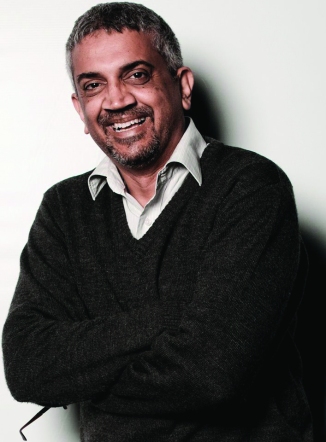The one good thing about growing older is that you
discover how phenomenally ignorant you’ve been all the preceding years.
I no longer care for degrees and formal education. Now,
it’s the process of learning for its own sake.
Tastes and interests do change over time. The same areas of knowledge that
seemed so absurd and pointless seem to shimmer with esoteric and wonderful
information. I can make very sincere and determined efforts to learn and be
enlightened.
I’ve written a number of books and I can say that
the ones I have a particular soft spot for are those where I had to make
efforts to learn something new to make the story even more believable. The two Sherlock Holmes, the Missing Years
books, Japan and Timbuktu, are examples of where I had a chance to apply that
new found zeal to learn, learn and learn.
What I really like to do is find out what might have
happened at different parts of the world during the same period. Once, an event
could happen in a region and no one might know about it even a thousand miles
away till several weeks or months later. In other words, the rate of influence
took much longer that our current instant appreciation of events that may
happen anywhere in the world. That means, cultures had a better chance to
blossom in a somewhat insular way, with the occasional flavour of a new
language or religion or cuisine mysteriously showing up. Those days are over
now, and technology has started creating homogeneity, though it may still take
several decades. But the heterogeneity of the past and the present make for a
collage of fascinating material.
Research in literature to make the plot seem more
believable is not new, of course. People like fiction with overlays of facts so
that they feel a sense of familiarity and grounding, and can relate to the plot
a little better. Research is oftentimes
like Brownian motion, which refers to the random movement of particles; you
find one nugget and as you read about it, you discover something else in
addition that’s equally interesting. It’s easy to wander away into new areas
and ‘waste’ time but who can deny the happiness of discovering things you had
no idea about.
The Japan
book involved considerable digging into European politics, the Trans Siberian
Railways, the ships of the time (1891-94), events in Japan, Korea and China, opium,
botany, the art and music of various countries and, of course language. The Timbuktu
book was even more complex – the Vatican, the state of politics in Northern
Africa, Timbuktu, the Tuaregs and their astonishing culture, the geography and
music of the land, the Sankore Mosque, the situation in the lower Nile (Sudan),
the ancient culture of the Meroes. Along the way, I learned about the Cathars
and integrated that into the plot. I really didn’t feel like ending the book.
Both the books would have seemed much lighter without the integration of colour
and context, created by research, both internet and library.
Of course, you can’t have a jumble of incoherent
facts thrown into a blender. There has to be an overall plot that is uplifted
by the addition of relevant information gleaned from research. And one must have common sense and know what
to red-mark and delete.
Another danger is that of coming across as wide but
not deep. That is possible. I view it as an acceptable risk simply because it
is not possible to know every single detail and you may alienate the reader
with too much. This is where the wisdom of an editor comes in.
Research requires patience, risk taking and lateral
thinking. All must work in tandem to reveal strains of thought that can weave
beautifully in a core plot. I like it and highly recommend it!
Find out about his book on Amazon

ABOUT THE AUTHOR
Vasudev was born in Delhi and has meandered around the world with lengthy stopovers in Tallahassee and Dallas. His books span a variety of interests, from Indian classical music to crime fiction, humor, and business management. A violinist and animal rights activist, Vasudev lives with his family and five snoring dogs in Bangalore, India where he runs a consulting firm.

